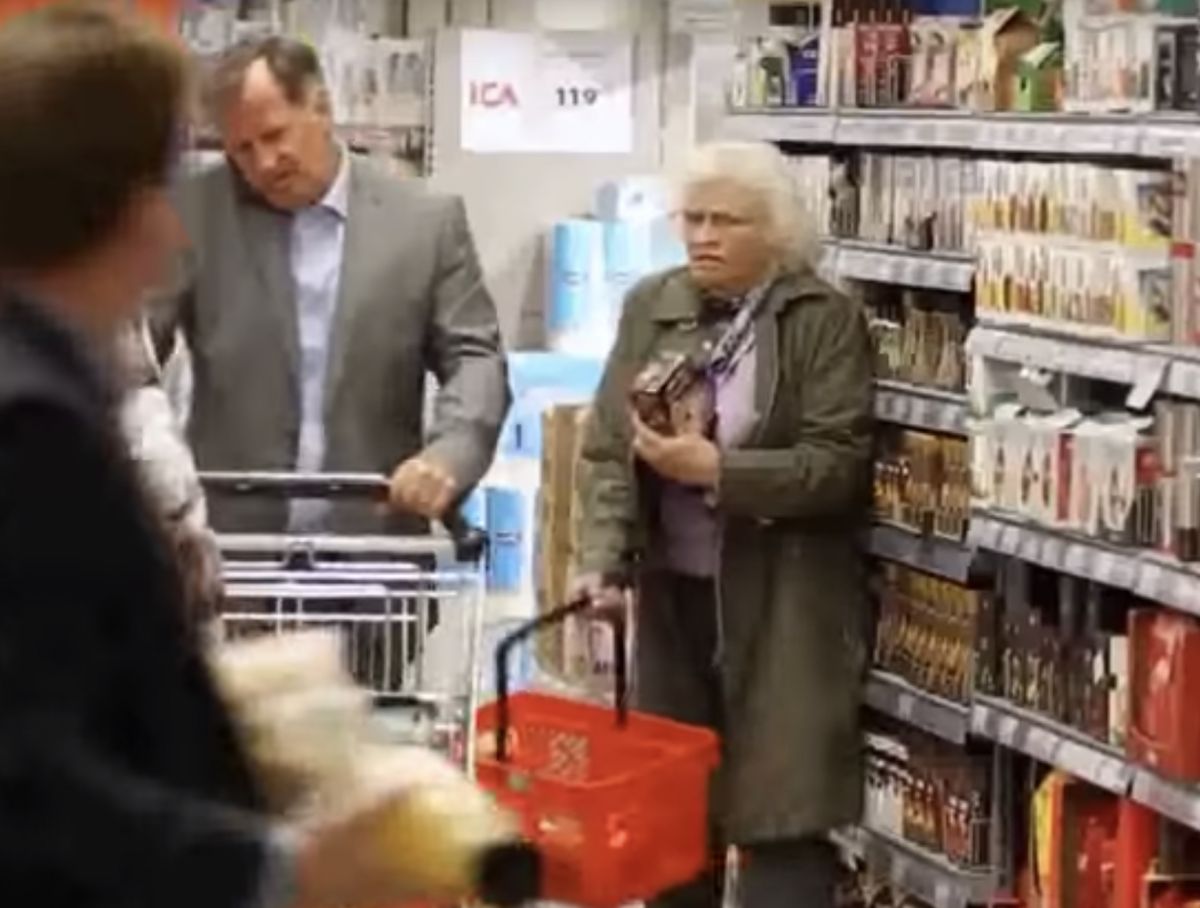The article ‘Strategies for USA Exporters Dealing with German Supermarkets’ aims to provide a comprehensive guide for U.S. exporters who are looking to penetrate the German supermarket sector. It offers insights into the unique aspects of the German market, including consumer behavior, regulatory frameworks, and competitive landscape. Additionally, the article outlines practical strategies for building relationships with German retailers, understanding legal and financial implications, optimizing marketing efforts, and managing logistics effectively. This guide is designed to help U.S. exporters navigate the complexities of exporting to Germany and establish a successful presence in one of Europe’s largest economies.
Key Takeaways
- Gain a deep understanding of German consumer preferences and market dynamics to tailor products and strategies accordingly.
- Adhere to Germany’s stringent regulatory environment and ensure compliance to avoid legal and financial setbacks.
- Cultivate long-term partnerships with German retailers through culturally informed negotiation and communication practices.
- Leverage digital marketing and adapt branding to resonate with the German audience while maintaining product quality and safety.
- Navigate the logistics and supply chain challenges by optimizing distribution channels and understanding customs regulations.
Understanding the German Supermarket Landscape
Market Dynamics and Consumer Preferences
We’re diving into the heart of the German supermarket scene, where consumer behavior and market forces intertwine. German shoppers are discerning; they value quality, sustainability, and local products. Our approach must align with these preferences to gain traction.
Competition is fierce, with a mix of global giants and niche players. To stand out, we must understand the nuances of this dynamic market. Here’s a snapshot of the key consumer trends:
- Preference for organic and locally sourced products
- High sensitivity to price and value
- Growing demand for convenience and ready-to-eat options
We must tailor our offerings to meet the German consumer’s high standards while ensuring competitive pricing.
Entering this market requires agility and a deep understanding of the local landscape. Let’s ensure our products resonate with German values and shopping habits to secure our place on their shelves.
Regulatory Environment and Compliance
We must navigate the complex regulatory environment with precision. Compliance is key to successful market entry. We’ll dissect the legal requirements and ensure our products meet German standards. Our strategy includes a thorough review of the Bundeskartellamt regulations, which oversee competition and antitrust laws.
To streamline our approach, we’ve outlined the essential steps:
- Understanding the specific regulations for our product category
- Ensuring all packaging and labeling meet German requirements
- Staying updated on changes in consumer protection laws
- Preparing for rigorous quality control inspections
Our proactive stance on compliance will safeguard our operations and reinforce our reputation among German retailers.
By adhering to these guidelines, we position ourselves as reliable partners, ready to thrive in Germany’s competitive landscape. Remember, meticulous attention to regulatory details can be the difference between success and setbacks in this market.
Competition and Market Entry Barriers
We’re up against a dynamic market, where understanding the nuances is key. Germany’s electronics export landscape demands high-quality products and a deep grasp of market characteristics. To thrive, we must navigate through stiff competition and stringent regulatory compliance.
Our approach includes:
- Identifying niche markets within Germany’s diverse consumer base.
- Aligning our product standards with German expectations.
- Establishing a robust legal framework to protect our interests.
We prioritize a strategic entry plan that addresses these barriers head-on, ensuring our foothold in the German market is both secure and profitable.
Remember, the barriers are not insurmountable. With the right strategy, we can turn these challenges into opportunities for growth.
Building Effective Relationships with German Retailers
Cultural Considerations in Business Practices
In our journey to establish a foothold in German supermarkets, we must embrace the cultural nuances of German business etiquette. Punctuality is paramount; it reflects reliability and respect. We schedule meetings well in advance and adhere strictly to the agreed-upon times.
- Understand the importance of formal greetings and titles.
- Appreciate the value Germans place on directness and clarity in communication.
- Recognize the preference for detailed documentation and thoroughness in business dealings.
We navigate the subtleties of German negotiation styles with a blend of direct communication and detailed preparation. Our approach balances the need for clear terms with an appreciation for the methodical decision-making process valued by our German counterparts.
We’re mindful of the hierarchical structures often present in German businesses, ensuring we engage with the appropriate contacts at the right level. This respect for protocol facilitates smoother interactions and fosters mutual respect.
Negotiation Strategies for Long-Term Partnerships
When we approach negotiations with German retailers, our primary goal is to establish stable and enduring partnerships. We prioritize due diligence in partner selection, ensuring that our values and business practices align. It’s essential to adapt to local business practices, which often means understanding the nuances of German corporate culture.
To mitigate risks, we develop clear legal recourse options and assess the impact of unsettled trade accounts on our operations.
Our negotiation strategies are not just about the immediate deal but about building a foundation for ongoing trade relations. Here’s a quick rundown of our approach:
- Establish clear communication channels and expectations.
- Embrace transparency in all dealings.
- Foster mutual respect and understanding.
- Secure agreements that allow for flexibility and growth.
By adhering to these principles, we pave the way for long-term success in the German market.
Communication and Follow-Up Protocols
We understand that clear communication and diligent follow-up are key to maintaining strong relationships with German retailers. Our approach is proactive and structured, ensuring we stay on top of every detail.
Consistency is our mantra when it comes to follow-up protocols. We’ve established a rhythm of regular check-ins, updates, and feedback sessions that align with the expectations of our German partners. This helps in addressing any concerns promptly and reinforces trust.
- Initial contact within 24 hours of agreement
- Weekly progress reports
- Monthly review meetings
- Quarterly strategic alignment sessions
We prioritize transparency in every interaction, fostering a culture of open dialogue and mutual respect.
By adapting to the preferred communication styles of German retailers and respecting their business etiquette, we bridge cultural gaps and ensure smooth transactions. Our team is adept at navigating cultural differences in payment practices, utilizing tools like LCs and escrow services to secure transactions.
Navigating the Legal and Financial Aspects
Understanding the German Legal System for Exporters
We must navigate the complexities of the German legal system with precision. Understanding legal framework for export collections is crucial. Compliance with the German Commercial Code and export regulations, international trade agreements, and legal recourse for unpaid invoices are key for successful collections. Here’s a snapshot of our approach:
- We initiate contact with debtors swiftly, employing various communication methods.
- If necessary, we engage local attorneys within the debtor’s jurisdiction.
- We provide transparent recommendations based on the debtor’s assets and the likelihood of recovery.
When litigation is the chosen path, we’re upfront about the costs involved. Court costs and filing fees are typically between $600 to $700. Our affiliated attorney will then advocate for your interests, seeking recovery of all monies owed.
Our fee structure is clear and competitive, ensuring you understand the financial implications from the outset. We tailor our rates based on the age of the account and the number of claims, with a focus on maximizing the amount collected for you.
Managing Financial Risks and Recovery Systems
We understand the complexities of the German market and prioritize managing financial risks effectively. Establishing local partnerships is a key strategy, as it provides us with insights and support on the ground. Utilizing export credit insurance shields us from non-payment risks, ensuring we’re not left vulnerable.
Our approach includes a robust recovery system, tailored to the nuances of German regulations. We initiate with direct communication and amicable resolution attempts. If these fail, we escalate to legal action, fully aware of the costs involved. Here’s a snapshot of our phased recovery process:
- Phase One: Immediate action with letters, skip-tracing, and persistent contact attempts.
- Phase Two: Local attorney involvement, with a series of demand letters and calls.
- Phase Three: Litigation recommendation based on a thorough investigation, or case closure if recovery is unlikely.
We’re committed to transparency and efficiency in our recovery efforts, ensuring you’re informed at every step.
Our fee structure is competitive and contingent on the age and amount of the claim, reflecting our commitment to a fair partnership. We’re equipped to navigate the challenges and thrive in the German market.
Cost Structures and Pricing Strategies
We must be astute in aligning our pricing with the German market’s expectations. Cost efficiency is key to remaining competitive. Our strategy involves a multi-tiered approach:
- Understanding the market: We analyze the demand for US agricultural products, consumer purchasing power, and the growing interest in sustainability.
- Setting competitive prices: We benchmark against local and international competitors to ensure our prices are attractive yet profitable.
- Managing expenses: Keeping a tight rein on production, shipping, and marketing costs to maximize our margins.
Our pricing model must reflect the balance between quality and affordability to resonate with German consumers.
We also consider promotional strategies such as marketing campaigns, trade fairs, and collaborations to boost our presence and justify our pricing. It’s a delicate dance of numbers and perception, one that we navigate with precision to capitalize on the opportunities the German market offers.
Marketing and Brand Positioning
Adapting Your Brand to the German Market
We understand that entering the German market requires more than just translating our brand message; it demands a nuanced approach that resonates with local culture and values. Our brand must adapt to meet the expectations of German consumers, ensuring relevance and appeal in a competitive landscape.
Localization is key. We must consider the regional differences within Germany and tailor our brand accordingly. This isn’t just about language, but also about understanding local customs, humor, and preferences. Here’s a quick checklist to guide our brand adaptation strategy:
- Research and understand regional consumer behavior
- Align product offerings with local tastes and needs
- Localize marketing materials and campaigns
- Collaborate with local influencers and brand ambassadors
- Ensure all branding complies with German standards and regulations
We must not underestimate the importance of cultural nuances. A misstep here can mean the difference between success and failure. Our commitment to cultural sensitivity will pave the way for a brand that German consumers can trust and embrace.
Effective Packaging and Labeling for German Consumers
We understand that packaging and labeling are more than just wrapping; they’re your brand’s handshake with German consumers. It’s essential to strike the right chord with design that resonates. Here’s what we focus on:
- Compliance: Adhering to Germany’s stringent packaging regulations is non-negotiable. We ensure all materials meet the necessary standards.
- Sustainability: With a strong preference for eco-friendly options, we prioritize recyclable and biodegradable packaging.
- Clarity: Clear labeling in German is a must. We include all product information, ensuring it’s easily understandable.
- Cultural Relevance: We tailor visuals and messaging to align with German values and aesthetics.
We never underestimate the power of first impressions. Our packaging is designed to communicate quality and trust, key factors in the German market.
Remember, the right packaging can make or break consumer perception. We’re committed to getting it right.
Utilizing Digital Marketing and Social Media
We’re harnessing the power of digital marketing to penetrate the German market. Our data-driven approach identifies target customers and market segments, ensuring our message resonates with the right audience. We utilize multi-channel marketing strategies, from social media campaigns to targeted ads, to amplify our brand’s presence.
Engagement is key. We craft content that speaks to German consumers, fostering interaction and building community. Our social media efforts are more than just posts; they’re conversations that lead to brand loyalty.
- Analyze market dynamics
- Understand consumer behavior
- Navigate import regulations
We’re not just selling a product; we’re creating an experience that German consumers will want to be a part of.
By staying agile and responsive, we keep our finger on the pulse of the ever-evolving digital landscape. This isn’t just about making noise; it’s about making an impact.
Logistics and Supply Chain Management
Optimizing Transportation and Distribution Channels
In our quest to conquer the German market, we must streamline our logistics to keep pace with the demands. Efficiency is key in transportation and distribution, ensuring our products arrive on time and in perfect condition. We leverage cutting-edge technology and data analytics to predict and respond to market trends, optimizing routes and reducing transit times.
Collaboration with local partners is crucial. They provide invaluable insights into the best practices for distribution, helping us navigate the complexities of the German landscape. Our approach includes:
- Establishing a robust network of regional distributors
- Utilizing multimodal transport solutions to reduce costs
- Implementing real-time tracking systems for transparency
By meticulously planning every step of the supply chain, we minimize disruptions and maintain a competitive edge.
We’re committed to continuous improvement, always seeking ways to enhance our supply chain efficiency. This dedication not only meets but exceeds the expectations of German retailers and consumers alike.
Dealing with Customs and Import Regulations
Navigating customs and import regulations is a critical step in exporting to Germany. We must ensure compliance with all legal requirements to avoid costly delays. Our strategy includes staying abreast of the latest regulations, which can be intricate, especially in sectors like the automotive parts trade.
- We leverage the expertise of customs brokers to facilitate the process.
- We meticulously document all shipments and maintain clear records.
- We understand and follow the key aspects of German customs procedures to ensure success.
It’s essential to have a system in place for regular updates on regulatory changes. This proactive approach minimizes the risk of non-compliance and positions us for smooth transactions.
Remember, the landscape is ever-changing, and what works today may need adjustment tomorrow. We’re committed to continuous learning and adaptation in this complex environment.
Ensuring Product Quality and Safety Standards
We understand that maintaining the highest standards of product quality and safety is paramount when entering the German market. Our commitment to excellence is not just about meeting expectations, but exceeding them. To ensure compliance with Germany’s stringent regulations, we’ve established a robust quality assurance process.
Collaboration with local distributors is essential for navigating the complex landscape of German banking and regulations. Our partners are well-versed in the requirements specific to medical equipment, which is a key area for US exporters. By working closely with these experts, we can guarantee that our products meet all necessary standards before they reach the supermarket shelves.
Our approach includes:
- Rigorous testing and certification of products
- Regular audits of manufacturing processes
- Adherence to German and EU safety regulations
We leave no stone unturned when it comes to product quality and safety. Our proactive measures protect not only our brand reputation but also the trust of our German consumers and retailers.
In the fast-paced world of Logistics and Supply Chain Management, ensuring the efficient recovery of outstanding debts is crucial for maintaining a healthy cash flow. At Debt Collectors International, we specialize in providing tailored debt collection solutions that cater to the unique needs of the logistics sector. Our experienced team utilizes cutting-edge techniques in skip tracing, dispute resolution, and judgment enforcement to maximize your recoveries. Don’t let unpaid invoices disrupt your operations. Visit our website now to learn more about our services and how we can assist you in safeguarding your financial interests.
Frequently Asked Questions
What are the key factors to consider when entering the German supermarket market?
Key factors include understanding consumer preferences, complying with regulatory standards, navigating competition, and overcoming market entry barriers.
How can USA exporters build effective relationships with German retailers?
Exporters can build relationships by respecting cultural business practices, employing strategic negotiation techniques for partnerships, and establishing clear communication and follow-up protocols.
What legal aspects must USA exporters be aware of when exporting to Germany?
Exporters should understand the German legal system, manage financial risks, be aware of cost structures and pricing strategies, and understand the implications of Phase Three recovery recommendations.
How should USA exporters adapt their branding for the German market?
Exporters should tailor their brand to align with German consumer expectations, ensure effective packaging and labeling, and leverage digital marketing and social media.
What logistics and supply chain challenges might USA exporters face in Germany?
Challenges include optimizing transportation, dealing with customs and import regulations, and ensuring product quality and safety meet German standards.
Can you explain the fee structure for debt recovery in case of non-payment by German debtors?
Fees depend on the age and amount of the claim, ranging from 27% to 50% of the amount collected. Legal action requires upfront costs, but if collection attempts fail, you will owe nothing further.





